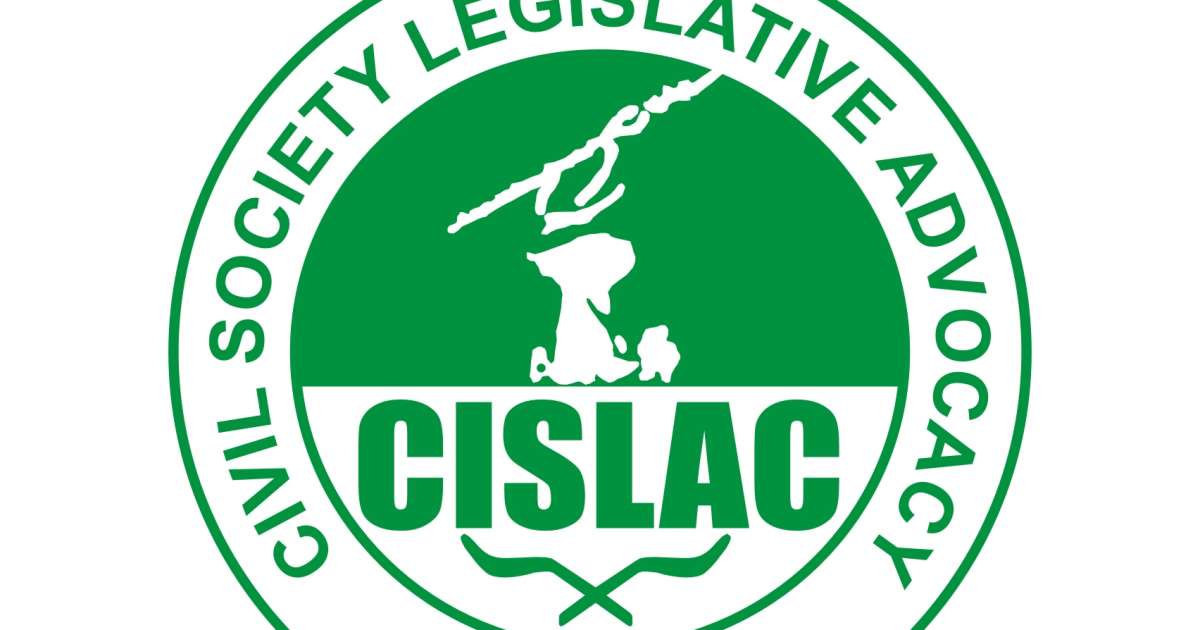…As NEITI tasks CSOs Nigeria’s extractive governance
Executive Director of Civil Society Legislative Advocacy Center (CISLAC), Comrade Auwal Musa Rafisanjani on Monday renewed the Organization’s resolve to engage the National Assembly to strengthen extractive governance laws, including the oversight of the Petroleum Industry Act and reforms in the solid minerals sector.
Comrade Rafisanjani gave the assurance in Abuja while addressing Executive Secretary/CEO Nigeria Extractive Industries Transparency Initiative (NEITI), Dr. Ogbonnaya Orji, harped on the need for both parties to synergize in the area of training programmes for Journalists, Parliamentarians and CSOs in the bid to demystify complex extractive data and increase public demand for accountability.
Comrade Rafisanjani reiterated the Centre’s resolve to partner relevant CSOs for a legislative framework that would entrench transparency in the extractive sector.
That effort led to Nigeria becoming the first country in the world to take practical steps to implement the Extractive Industries Transparency Initiative (EITI), after voluntarily signing up to the initiative in 2003.
He said: “CISLAC’s core mission, to deepen legislative and institutional reform for social justice and good governance, finds full expression in NEITI’s own work. Both of our institutions are anchored in transparency. More importantly, both are driven by a people-centered vision: that Nigeria’s vast natural wealth must be used for the benefit of all Nigerians, not just the privileged few.
Our partnership has extended across: policy dialogues, public awareness campaigns, host community engagements, beneficial ownership transparency advocacy, and most importantly, joint efforts to amplify audit findings and demand accountability.
“NEITI remains one of the most strategic institutions driving transparency, accountability, and reform in Nigeria’s extractive sector. Over the years, your work has provided critical data, exposed gaps, and pushed for reforms that have saved the country billions and informed policy decisions.
“Your commitment to ensuring that Nigeria’s vast oil, gas, and solid mineral resources translate to tangible development outcomes has been invaluable, especially in a country where resource wealth has too often failed to deliver on its promise.
“We at CISLAC, and in our broader role as Transparency International Nigeria, recognize NEITI not just as a partner but as a frontline champion of open governance. As we reflect on this shared history, we must also face current realities.
“Today, Nigeria is navigating complex challenges: declining oil revenues, the growing imperative of energy transition, and emerging governance risks in the expanding solid minerals sector. This context makes your visit today not only timely, but also urgent.
We must ask: are we effectively using NEITI reports to drive accountability and reform? Are we sufficiently translating data into action at the sub-national level?
Are communities in extractive regions seeing the impact of transparency? These are the questions CISLAC continues to raise. We believe that deepening collaboration between NEITI and civil society is key to answering them.”
Speaking on the theme: ETI Emerging issues: A call for new agenda for the Civil Society, Executive Secretary/CEO Nigeria Extractive Industries Transparency Initiative (NEITI), Dr. Ogbonnaya Orji affirmed that CISLAC has over the years, earned an enviable reputation as a strong voice for civic advocacy, governance reform, and the protection of democratic space in Nigeria.
He said: “Across the world, civil society organisations have proven indispensable in shaping governance outcomes. They amplify citizen voices, defend transparency norms, and catalyse reforms that governments and companies alone cannot deliver. Within the Extractive Industries Transparency Initiative (EITI), civil society has remained the conscience of the process—demanding disclosures, safeguarding civic space, and ensuring that reforms translate into meaningful impacts for citizens.
“Globally, CSOs have influenced the direction of international aid, the design of poverty alleviation programmes, and the building of institutions. They have elevated debates on tax justice, climate accountability, illicit financial flows, and debt transparency issues central to sustainable development.
“But as we enter a new era defined by the energy transition, digitalisation, and fiscal pressures, the question before us is not whether civil society matters, but how civil society can redefine and strengthen its role to remain impactful in the years ahead.
“While the roles of governments and extractive companies under the EITI are clear and well-defined, the role of civil society must now be elevated beyond routine advocacy. It is time to move from simply demanding accountability to providing knowledge-based, evidence-driven, and solution-oriented leadership that adds real value to governance.
ALSO READ: South-East lagging behind in ongoing voter registration — El-Rufai
“This new agenda calls for civil society to lead in energy transition accountability by developing scorecards that track government and company commitments, and by shaping community transition plans so that no one is left behind.
“It calls for CSOs to go beyond demanding contract and beneficial ownership disclosures, to analysing them, interpreting risks, and distilling lessons for policy and citizens. It calls for more engagement on resource mobilisation and fiscal justice, providing alternative policy options on revenue, subsidy reforms, debt sustainability, and equitable development.
“And it calls for vigilance in curbing illicit financial flows, building civic observatories, and collaborating with investigative journalists, financial intelligence units, and global watchdogs.”
WATCH TOP VIDEOS FROM NIGERIAN TRIBUNE TV
- Let’s Talk About SELF-AWARENESS
- Is Your Confidence Mistaken for Pride? Let’s talk about it
- Is Etiquette About Perfection…Or Just Not Being Rude?
- Top Psychologist Reveal 3 Signs You’re Struggling With Imposter Syndrome
- Do You Pick Up Work-Related Calls at Midnight or Never? Let’s Talk About Boundaries






